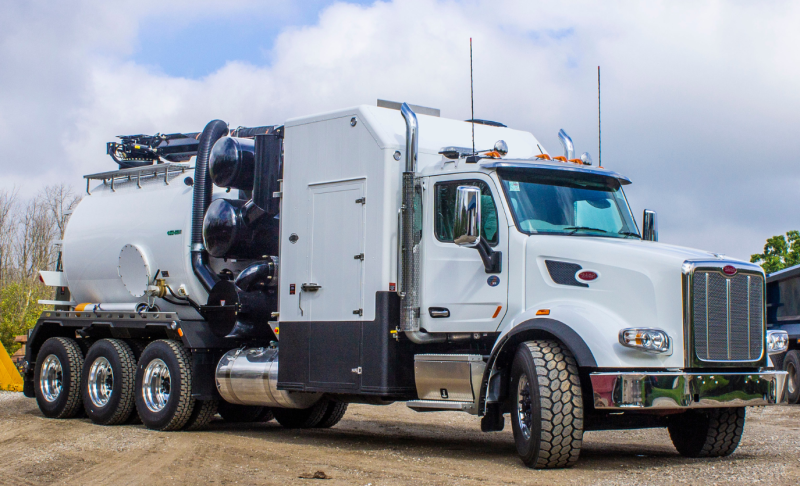5 Essential Daily Checks for Vacuum Truck Maintenance
Keep that hydro vac truck running smooth.
Posted 12:59 May 20, 2024
Last Updated 13:10 May 20, 2024

Maintaining a vacuum truck is crucial for ensuring its efficient operation and longevity. Regular daily checks can help prevent breakdowns, reduce repair costs, and ensure safety for operators and the environment. Here are five essential daily checks that should be performed to maintain a vacuum truck effectively.
Firstly, it is essential to inspect the truck’s fluid levels. This includes engine oil, hydraulic fluid, coolant, and brake fluid. Checking the engine oil is critical because it lubricates the engine components, preventing wear and tear. Low oil levels can lead to engine overheating and severe damage. Hydraulic fluid is vital for operating the truck's various hydraulic systems, including the vacuum pump and boom. Without adequate hydraulic fluid, these systems may fail, leading to costly repairs. Coolant levels must also be monitored to prevent the engine from overheating, which can cause engine failure. Finally, brake fluid is essential for the proper functioning of the truck's braking system. Low brake fluid levels can result in brake failure, posing a significant safety risk.
Secondly, a thorough inspection of the vacuum pump and blower system is necessary. The vacuum pump is the heart of the vacuum truck, responsible for creating the suction needed to perform its primary function. Daily checks should include inspecting the pump for any visible damage or leaks, ensuring that all connections are secure, and listening for unusual noises that could indicate a problem. The blower system should also be checked for signs of wear and tear. Any debris or obstructions in the blower can reduce its efficiency and lead to mechanical failure. Regular maintenance and cleaning of the blower system can help prevent these issues and ensure optimal performance.
The third essential check is to examine the truck's hoses and connections. Vacuum trucks rely on a network of hoses to transport the collected material from the excavation site to the storage tank. These hoses are subjected to significant wear and tear, and any leaks or damage can reduce the truck's efficiency and create environmental hazards. Daily checks should involve inspecting hoses for cracks, punctures, or other signs of damage. Additionally, ensuring that all connections are secure and free from leaks is crucial. Any damaged hoses or faulty connections should be repaired or replaced immediately to prevent further issues.
Fourthly, it is vital to check the condition of the truck's filters. Vacuum trucks are equipped with various filters, including air filters, oil filters, and hydraulic filters. These filters play a critical role in protecting the truck's components from contaminants and ensuring smooth operation. Daily checks should involve inspecting the filters for any signs of clogging or damage. Clogged filters can restrict airflow, reduce efficiency, and cause engine strain. If a filter appears dirty or damaged, it should be cleaned or replaced promptly. Regular filter maintenance helps maintain the truck's performance and extends the lifespan of its components.
Lastly, operators should perform a comprehensive inspection of the truck's safety features. This includes checking the lights, signals, and brakes to ensure they are functioning correctly. The truck’s emergency equipment, such as fire extinguishers and first aid kits, should also be inspected to ensure they are in good condition and accessible. Ensuring that all safety features are operational is crucial for protecting the operator and others on the job site. Additionally, the stability of the truck should be checked, ensuring that all outriggers and stabilizers are properly deployed and functioning to prevent tipping during operation.
In conclusion, performing these five essential daily checks—inspecting fluid levels, the vacuum pump and blower system, hoses and connections, filters, and safety features—can significantly enhance the reliability and efficiency of a vacuum truck. Regular maintenance not only prevents costly repairs but also ensures the safety of operators and the surrounding environment. By integrating these checks into the daily routine, operators can help ensure their vacuum trucks remain in optimal working condition.
